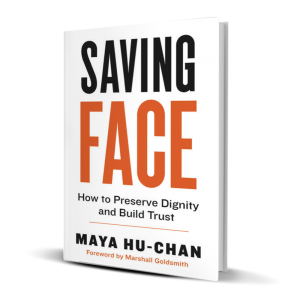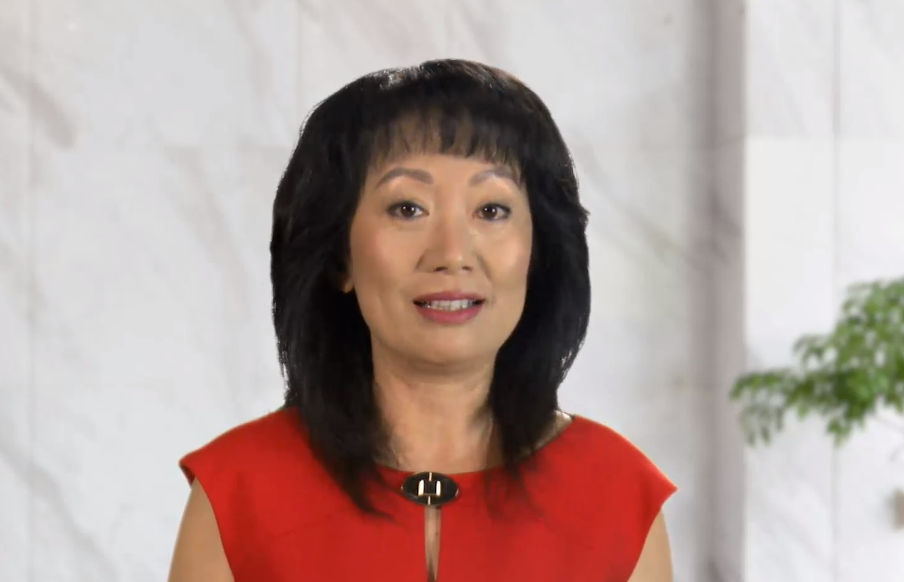 How do you feel when you’re checking out of a store and someone behind the counter says, “Have a nice day?” Do you get a little shimmy in your step? Does your day get a little brighter? Not really? Ever wonder why that is? The term have a nice day is often uttered by service employees to customers at the end of a transaction. Most of the time, it doesn’t really mean anything because it’s not real. It doesn’t feel authentic to us. As author Brene Brown put it, “Authenticity is not something we have or don’t have. It’s a practice, a conscious choice of how we want to live. It’s about the choice to show up and be real. The choice to be honest. The choice to let our true selves be seen.” When it comes to the concept of saving face, being authentic isn’t just a means to an end. It’s the key factor for maintaining dignity.
How do you feel when you’re checking out of a store and someone behind the counter says, “Have a nice day?” Do you get a little shimmy in your step? Does your day get a little brighter? Not really? Ever wonder why that is? The term have a nice day is often uttered by service employees to customers at the end of a transaction. Most of the time, it doesn’t really mean anything because it’s not real. It doesn’t feel authentic to us. As author Brene Brown put it, “Authenticity is not something we have or don’t have. It’s a practice, a conscious choice of how we want to live. It’s about the choice to show up and be real. The choice to be honest. The choice to let our true selves be seen.” When it comes to the concept of saving face, being authentic isn’t just a means to an end. It’s the key factor for maintaining dignity.
One of my clients is a major U.S. furniture manufacturer. They had ordered a new line of dining tables to be made by a factory in Southern China. They sent a detailed blueprint design to the factory, and set up deadlines for product review and delivery. A few weeks later, the American manager checked on the progress, and to his surprise, the factory ignored the blueprint design and they added shiny metal bars to the table legs. “Why did you add the bars? It is not in a design,” the Americans asked. “Well,” the Chinese said, “It’s a design improvement.” The U.S. company told the Chinese to remove the rods and follow the original design. But the bars were still there at their next meeting.
After many weeks, one of the American executives began gently probing the factory engineers and discovered the real issue. He found out that the Chinese company used the bars because they could not find the right parts as required by the original design. Fearing loss of face on a multimillion-dollar deal, the embarrassed Chinese had said nothing. The American manager offered to work together with the Chinese to find a supplier with the right parts. The tables were made, and the deal was closed. To everyone’s satisfaction, the American manager has helped the Chinese save face.
So, here’s how I define saving face.
1. Saving face is preserving dignity for others. Dignity is the state of being worthy of honor or respect. When you help someone preserve their dignity, you make them feel respected and valued. That’s the foundation of trust.
2. Saving face requires you to be kind but firm. Brene Brown said, “We can be compassionate and accepting while we hold people accountable for their behaviors. We can, and in fact, it’s the best way to do it.”
3. Saving face is creating psychological safety. Make others feel heard, understood, and appreciated. Create a safe space for people to speak up, contribute, share ideas, and take risk so they can be creative and do their best work.
4. Saving face is intentional. Start with the end goal in mind. Ask, what is my intention? What do I want to achieve? State your intention repeatedly to create openness for authentic conversations.
5. Saving face is following the Platinum Rule. You know the Golden Rule, treat others the way you like to be treated. So, what is the Platinum Rule? There’s only one word difference: treat others as they would like to be treated.
6. Saving face is inclusive. It promotes a sense of belonging, not just fitting in. When people feel they belong, they’re more open, more relaxed, more engaged, and ultimately, more productive.
Finally, saving face is winning all around. Strive to achieve the best outcomes for everyone involved. It’s not win-lose, not win-win, but winning all around. To achieve this, it may require compromise, negotiation, powerful questions, authentic conversations, and creative solutions.
 My book, Saving Face illustrates how we can honor face to create positive first impressions, avoid causing others to lose face, and, most importantly, help others save face to build trust and lasting relationships inside and outside the workplace.
My book, Saving Face illustrates how we can honor face to create positive first impressions, avoid causing others to lose face, and, most importantly, help others save face to build trust and lasting relationships inside and outside the workplace.
Click here to watch the video.
This video was originally posted on AthenaOnline.com

